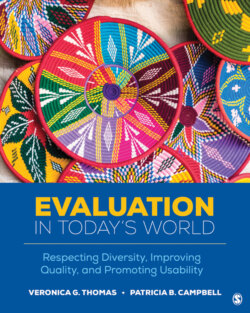Читать книгу Evaluation in Today’s World - Veronica G. Thomas - Страница 100
На сайте Литреса книга снята с продажи.
Interplay of Politics and Ethics
ОглавлениеIt is also worth distinguishing ethical considerations from political issues, although they are oftentimes closely intertwined. Ethical considerations relate to issues of right and wrong, good and bad, whereas the central focus of political issues relates to power and control. Political issues can undermine the integrity of an evaluation and certainly have ethical ramifications by silencing voices and perspectives of the less powerful and rendering these individuals invisible. For example, politics is likely operating when an evaluator is only allowed to evaluate what project administrators or funders believe to be model or successful sites while more troublesome sites are hidden or excluded from consideration. This is a power play that has definite ethical implications related to excluding certain perspectives from consideration.
Power plays, or attempts to gain an advantage by using certain tactics to magnify one’s influence or power, can be exhibited by the evaluator, as well as by various stakeholders. For example, power plays by those being evaluated (e.g., program staff) include denying the need for an evaluation, claiming the evaluation will take too much time away from their normal workload, and/or intentionally providing the evaluator with huge amounts of information so it is difficult to sort out what is relevant and what is not (International Program for Development Evaluation Training [IPDET], 2009). Power plays by the evaluator might include using the “experts know best” line, applying unstated criteria to decision making, and/or applying unstated values and ideological filters to the data interpretation (IPDET, 2009). Other stakeholders, such as community members, can also engage in power plays with ethical ramifications (see the following case studies for additional examples).
